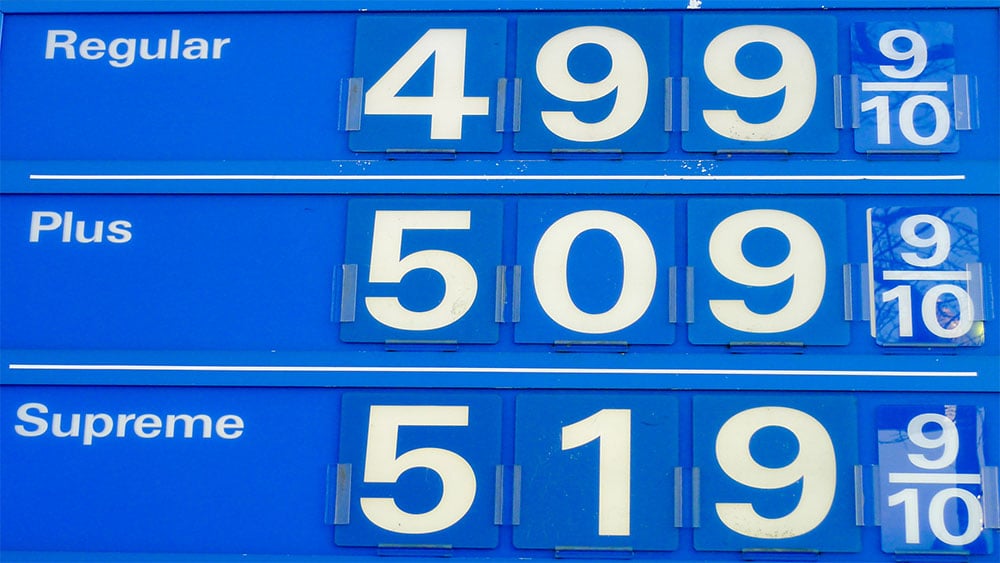[ad_1]
The U.S. economy’s recession vibe is back — a month after falling gas prices and student loan forgiveness fueled one of the biggest jumps in optimism in more than a decade. The IBD/TIPP Economic Optimism Index slid 3.1 points to a downbeat 41.6 in October.
X
The index gave up nearly half of September’s 6.6-point jump, after matching an 11-year low in August. It has been stuck in pessimistic territory, below the 50 neutral level, for 14 straight months.
Generational Divide Over U.S. Economy
The Biden administration’s move to forgive up to $20,000 in federal college loans has widened the optimism gap between adults age 18 to 44 and those 45 and up.
The IBD Economic Optimism Index reading among those age 18-24 and 25-44 averaged 53.9 in October, up from 43.2 in August, before President Joe Biden acted on student debt. Meanwhile, the index averaged 31.5 for those 45 and up in October vs. 33.6 in August.
U.S. Economy In A Recession?
The share of Americans who think the U.S. economy is in a recession rose to 61% from 59% in September. Though just off August’s 62%, recession fears have mounted since May, when 48% of Americans believed a recession had begun.
Meanwhile, the IBD/TIPP Financial-Related Stress Index jumped 1.9 points to 69.5 in October’s poll. That’s just below April 2020’s 69.8 record high in polling going back to December 2007. Readings above 50 mean financial stress is rising.
Job growth remained solid in September as employers added 263,000 workers, while annual wage growth is a strong 5%. Yet just 22% of adults say their wages have kept pace with inflation, while 54% say they haven’t kept pace. Meanwhile, 90% of Americans are concerned about the path of inflation over the next 12 months.
Now concern about job loss is suddenly rising. October’s IBD/TIPP Poll found 38% of adults are concerned about job loss in their household, up from 34% in September and 31% in August.
Meanwhile, gas prices are moving higher again, with prices at the pump up to $3.923 a gallon as of Oct. 11 vs. $3.718 a month earlier. Gas prices have surged in California amid refinery issues.
Biden Approval Rating Backslides
U.S. Economic Optimism Index Components
The IBD/TIPP Economic Optimism Index is a composite of three major subindexes. They track views of near-term prospects for the U.S. economy and personal finances, along with support for government economic policies.
In October, the six-month outlook for the U.S. economy fell 4.1 points to a gloomy 35.4. In June, this subindex got as low as 30.6, the lowest level since July 2008, when the country was mired in a recession.
The personal finances subindex fell 3.8 points to 48.2. That’s still above July’s 45.3 reading, which was the weakest in the history of the IBD/TIPP Economic Optimism Index dating back to February 2001. Views of personal finances had reached a bullish 59.7 in July 2021.
The gauge of support for federal economic policies, which surged 7.4 points in September, slipped 1.5 points to 41.2 in October. August’s 35.3 reading was the lowest level since January 2014. That gauge got as high as 56.4 last June after more rounds of stimulus checks and amid a big push for more expansive policies from President Biden. Now, however, stimulus has lapsed and the Federal Reserve is hiking interest rates to try and rein in the inflation to which stimulus contributed.
Get Alerts To Stocks Near Buy Points With IBD SwingTrader
Investors Turn Bullish On U.S. Economy
The U.S. Economic Optimism gauge fell 3 points to 51.5 points among self-described investors, but remained in bullish territory, after surging 10.2 points in September from the prior month’s six-year low.
The optimism among investors comes despite a rough ride for stocks in recent weeks, amid aggressive Federal Reserve tightening of monetary policy to stem the biggest inflation outbreak since the early 1980s.
As of Monday’s close, the Dow Jones Industrial Average had fallen 20.6% from its all-time closing high on Jan. 4. The S&P 500 had fallen 24.7% from its peak, while the Nasdaq composite lost 33.4% after hitting a new 52-week low on Monday.
Time The Market With IBD’s ETF Market Strategy
Make sure to read IBD’s daily afternoon The Big Picture column to get the latest read on the prevailing market trend and what it means for your trading decisions.
Investors remain far more upbeat than noninvestors. Among noninvestors, the IBD/TIPP index fell 5.3 points to 34.5, deeply pessimistic.
The October IBD/TIPP Poll reflects online surveys of 1,376 adults from Oct. 5-7. The results come with a credibility interval of +/- 2.8 points.
Please follow Jed Graham on Twitter @IBD_JGraham for coverage of economic policy and financial markets.
YOU MAY ALSO LIKE:
Best Growth Stocks To Buy And Watch
Join IBD Live And Learn Top Chart-Reading And Trading Techniques From The Pros
[ad_2]
Image and article originally from www.investors.com. Read the original article here.

